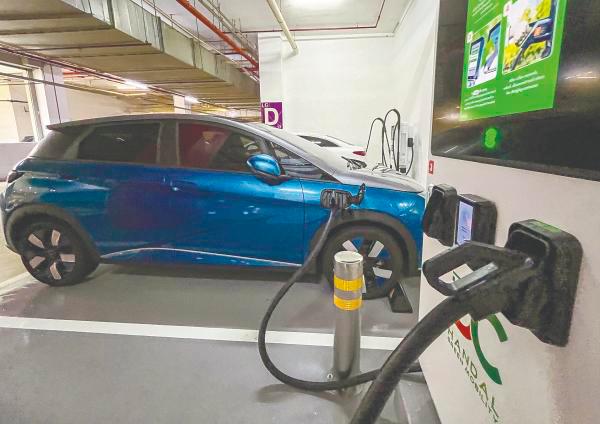PETALING JAYA: Given the current inflationary pressures, now is not the time to implement the proposed free parking policy for electric vehicles (EV), said experts.
Universiti Teknologi Mara Malaysian Institute of Transport head of legal and quality Dr Siti Ayu Jalil said although the Transport Ministry had announced reducing EV road tax by 85%, and introducing special plates for easy identification, the majority of Malaysians cannot afford such vehicles for now.
“Statistics collected between January 2022 and April 2024 on registered cars based on fuel type in Malaysia shows that 88% use petrol, 7.4% green diesel and 2.5% were hybrids, while only 1.2% were registered as EV.
“Thus, the immediate and potential economic benefits of this policy for local governments or the broader economy is unclear, unless a more attractive and effective way is found to encourage Malaysians to buy EV,” she said.
On Friday, the government said it was considering waiving parking fees for EV under local authority control to encourage more people to purchase such vehicles.
Housing and Local Government Minister Nga Kor Ming said his ministry was discussing it with local councils to assess the feasibility of the proposal.
Siti Ayu said if the potential economic benefits lie in reducing carbon emissions in the long term, implementing the policy may not be effective unless EV become affordable for the majority.
Additionally, she said the sale of EV must also consider charging infrastructure to build buyer confidence.
“It is important to note that charging EV is not free, and prices vary depending on location, type of charger and the service provider.
“Even in France, where the installation of fast chargers along highways has been accelerated, there is still much to be done, particularly regarding price transparency.”
Siti Ayu said neither the B40 nor M40 groups are likely to be impacted by the policy, as their primary concern is the high cost of living, especially in urban areas.
“People are still grappling with the 56% increase in diesel prices, yet the government is pursuing a policy that doesn’t benefit the public. The benefit will primarily be to the 1.2% who own EV, most of whom are in the T20 income group.
“In my perspective, equity is not an issue as long as parking fees for non-EV cars are maintained.”
However, Siti Ayu said if the government adopts a practice similar to London, where non-EV cars have to pay RM90 per entry into the city, the public might argue that the government is favouring the wealthy while making the poor worse off.
Universiti Teknologi Malaysia Automotive Development Centre director Dr Mohd Azman Abas said providing free parking for EV alone will not encourage EV adoption in the country.
“Designating parking spaces exclusively for EV without affecting parking availability for non-EV can be challenging, especially in areas with limited parking.”
Mohd Azman said this could spark resistance from non-EV users who may perceive it as inconvenient, potentially leading to misuse of such free spaces or causing illegal roadside parking.
“Local councils may encounter challenges such as reduced revenue and increased expenses due to infrastructure development for designated EV parking spaces, charging stations and the associated costs of monitoring and enforcement.”
However, he said for now, such implementation could be seen as benefiting wealthier individuals who can afford EV rather than addressing the more critical economic concerns of the lower-income groups.
“Resources should focus on accelerating the charging network with more rapid chargers, ensuring infrastructure reliability, or improving charger installation regulations.
“These measures are essential to effectively support the EV transition by addressing the practical needs and concerns of potential EV users, making EV adoption more appealing,” he said.









